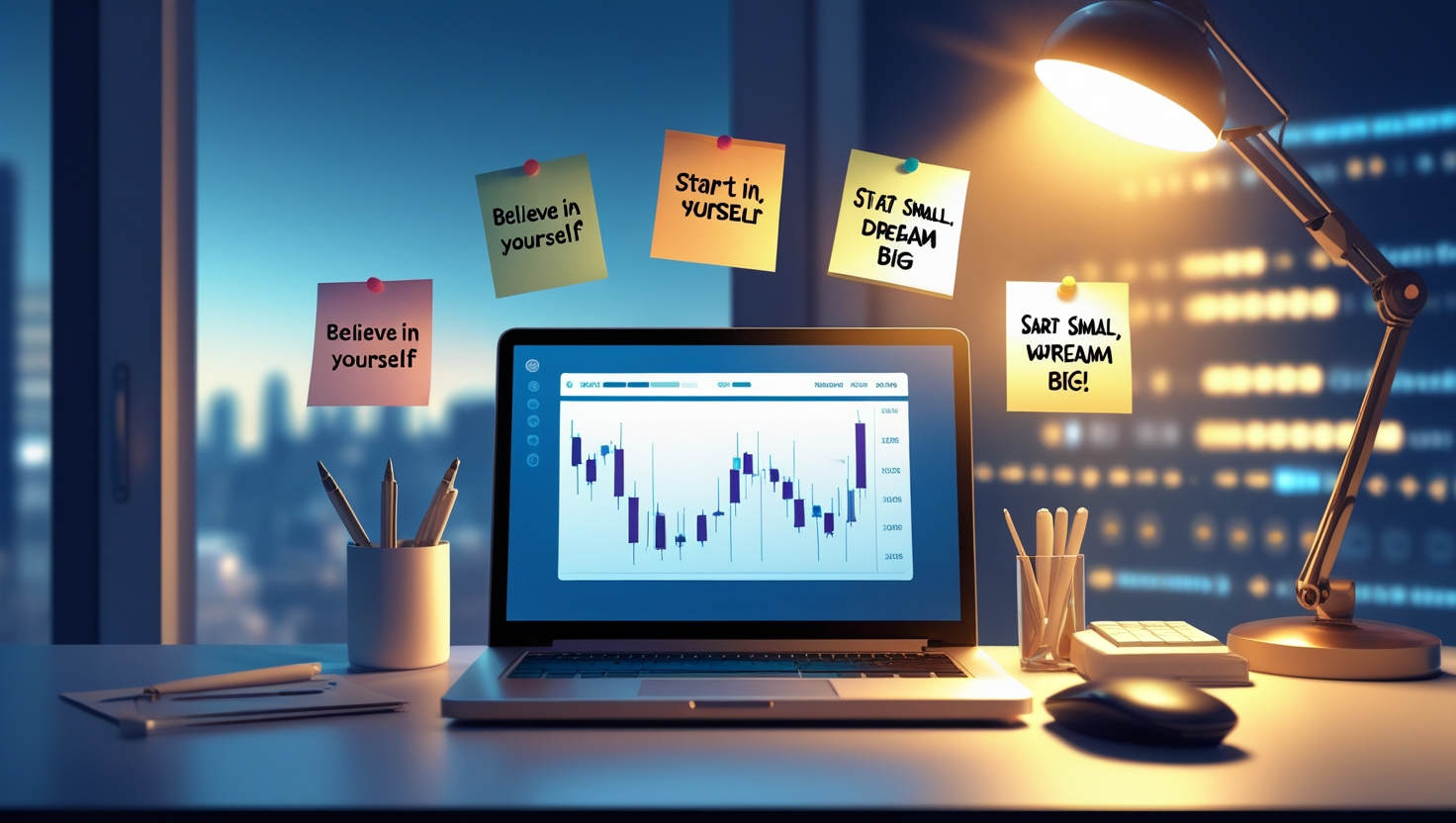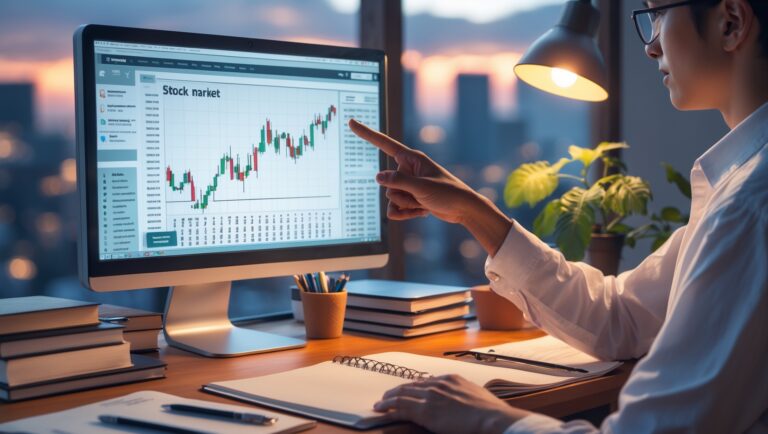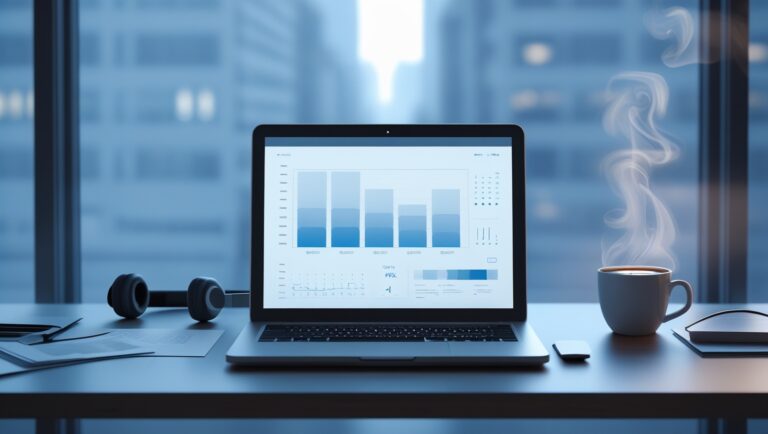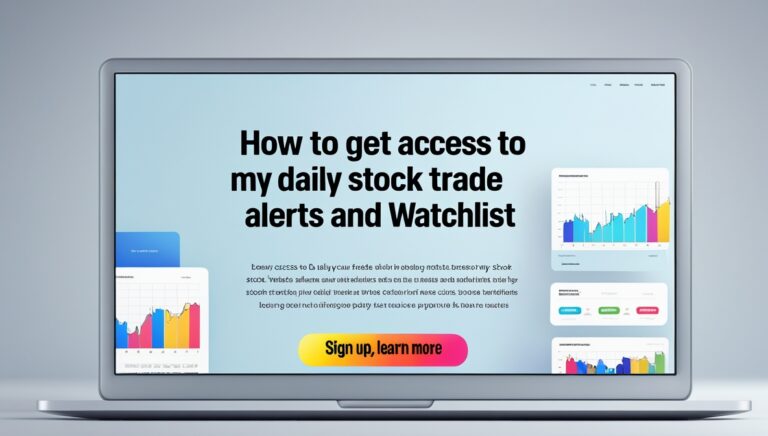How to Build Confidence in Trading (Even With a Small Account)
How to Build Confidence in Trading (Even With a Small Account)
When I first started trading, confidence wasn’t something I had. I second-guessed everything. I’d see a setup, hesitate, miss it, then chase something random and lose money. Over time, I realized that confidence in trading doesn’t come from luck or hype — it comes from consistency and clarity.
And yes, even if you’re trading with a small account, you can build serious confidence. In fact, it might be the best time to do it. You’re learning to grow with discipline, not size.
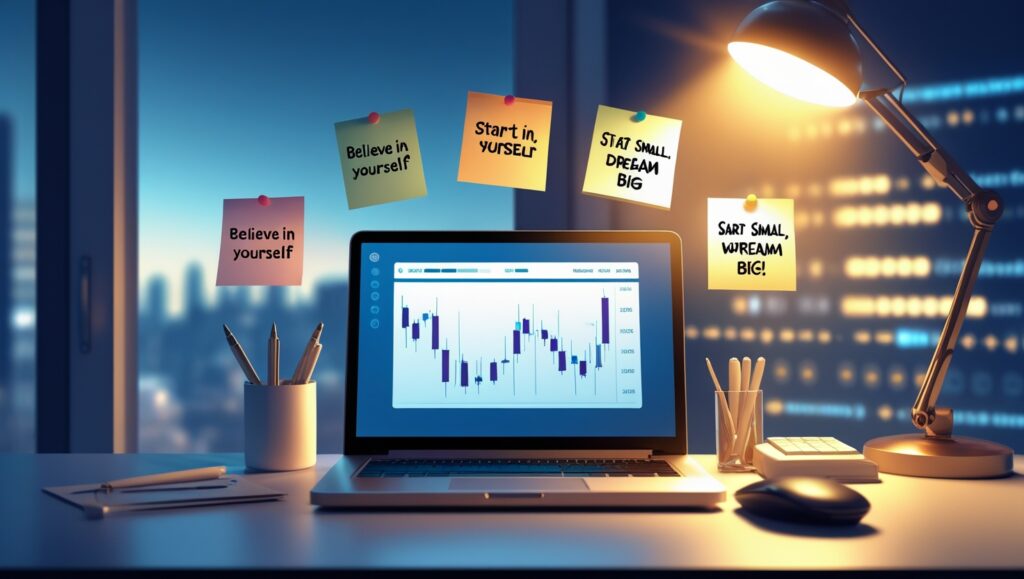
Table of Contents
Why Confidence Is Key in Stock Trading
Confidence helps you act on your edge. Without it, you hesitate or overreact. And when you’re trading a small account, every mistake hurts more. But when you build trust in your own process, you stop needing alerts, indicators, or someone else’s opinion.
What gave me confidence wasn’t some fancy system. It was repetition. I created a simple routine I could follow every day — even when I wasn’t trading. That’s how I started to trust myself.
My Personal Approach to Trading With Confidence
Every morning, I start with the same steps. I check pre-market trends, review my 6-stock watchlist, and prepare mentally before 9:30AM. I don’t chase. I don’t guess. I wait for my setup — and that discipline keeps me grounded.
I also journal my trades. Writing down what I did and why helps me track progress and spot emotional patterns. This one habit alone rebuilt my confidence after every loss.
Confidence Comes From Simplicity
One thing I had to unlearn was the idea that more tools = better results. I used to clutter my charts with indicators I didn’t understand. Now, I trade with clean charts and a plan I trust. Confidence comes from clarity — not complexity.
That’s the exact process I teach inside my ebook. It breaks down how I prep for trades, what I look for before entering, and how I manage emotions even with a small account. If you feel lost or stuck in trading, that guide is for you.
Why a Small Account Is an Advantage
Most people see a small account as a disadvantage — I don’t. It forces you to be selective. You can’t overtrade or take reckless risks. And that pressure, if used right, makes you a sharper, more focused trader.
Instead of trying to flip $100 into $10,000 in a week, I focused on hitting base hits. Small wins, repeated consistently. That gave me momentum — and confidence followed.
You Don’t Need to Be Right, You Need to Be Consistent
I stopped trying to catch every move. I stopped needing to win every trade. I focused on executing clean setups. And once I did that, my results stabilized — and my confidence grew stronger.
Trust Builds Over Time
Confidence is built one trade at a time. It’s not about the money you make — it’s about how well you follow your plan. Every time I followed my process, even on a losing trade, I felt good. Every time I broke my rules, even on a winning trade, I felt shaky.
Confidence comes from doing the right thing repeatedly, not just hoping for a big payout.
Final Thoughts
If you’re trying to build confidence as a trader, especially with a small account, focus on building a process you can follow every day. Keep it simple. Track everything. And give yourself room to grow.
You don’t need to trade like anyone else. You just need to create a system that works for you — and trust it. I share the full routine and setups I use in my ebook, so feel free to check it out if you’re ready to get serious without overcomplicating things.
Confidence is a byproduct of clarity. When I stopped jumping between strategies, my mind settled. I could finally focus. That’s when I realized the market isn’t complicated — my overthinking was.
I keep my trading screen clean. Just price action, volume, and key levels. No indicators. No distractions. When you simplify the chart, you see things more clearly — and clarity gives you control.
One of the biggest shifts I made was tracking everything. I started logging not just my wins and losses, but my emotional state during the trade. This helped me identify patterns in both performance and mindset.
I treat my small account with respect. I don’t see it as limited. I see it as powerful. It forces me to make quality decisions. And every good decision builds confidence.
Most people lose confidence because they copy others. I used to do the same. I’d follow alerts, trade someone else’s setup, and then feel confused when it didn’t work. Now, I only take trades that make sense to me.
Before I take a trade, I ask: Is this my setup or someone else’s? That question alone has saved me from chasing countless losing trades. It’s also helped me trust my own judgment more.
Confidence also comes from missing trades. Sounds strange, but when I skip a setup that doesn’t align with my rules, I feel strong. It means I’m in control — not FOMO.
My ebook was built around this transformation. I walk you through exactly how I prepare, how I spot trades, and how I manage my mindset — especially when your account is small and every dollar matters.
A big win doesn’t build as much confidence as a clean trade. I’ve made big profits before and still felt shaky. But when I followed my process, even for a small gain, I felt unshakable.
The key is to act like a pro, even with $200. Confidence isn’t about size. It’s about behavior. Trade like someone who knows what they’re doing — and soon, you will.
Don’t wait until your account is big to start trading right. That’s backwards. Build the right habits now, while your losses are manageable. That’s how you grow with confidence.
Confidence isn’t loud. It’s quiet. It’s not about bragging on social media. It’s knowing when to sit out, when to strike, and when to walk away — with discipline and peace of mind.

Stay ahead in the stock market! Subscribe to our newsletter and receive exclusive stock flow reports, trading insights, and actionable tips directly in your inbox. Join thousands of traders who get our updates first.

